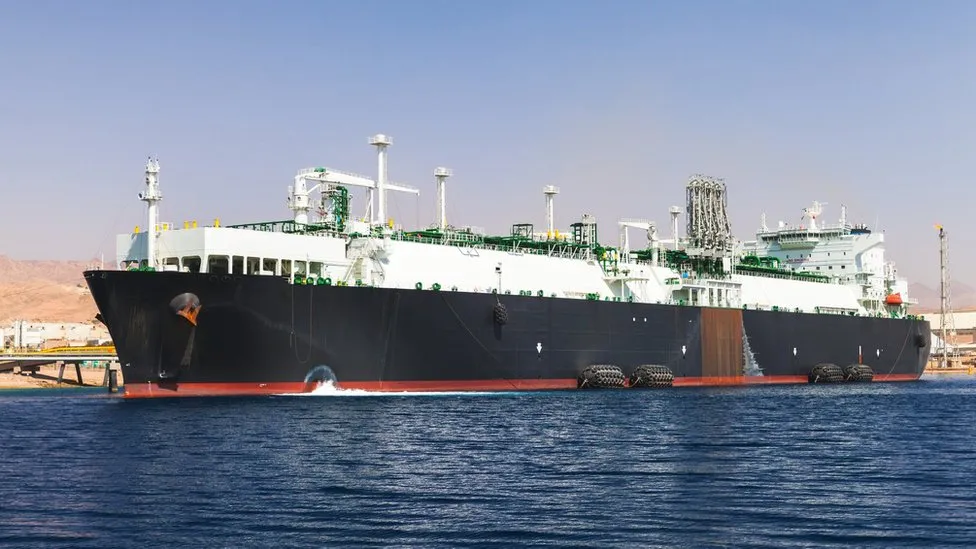
BP pauses all Red Sea shipments after rebel attacks
Oil giant BP will pause all shipments of oil through the Red Sea after recent attacks on vessels by Houthi rebels.
The firm blamed the “deteriorating security situation” in the region as Iran-backed Houthis target ships they believe are bound for Israel.
Many freight firms have suspended journeys as the attacks continue.
Following BP’s announcement the US said it would lead an international naval operation to protect ships along the route.
Countries joining the security group include the UK, Canada, France, Bahrain, Norway and Spain.
In a statement, US defence secretary Lloyd Austin said: “The recent escalation in reckless Houthi attacks originating from Yemen threatens the free flow of commerce, endangers innocent mariners, and violates international law.”
BP said it would keep its “precautionary pause under ongoing review” and monitor the region.
Analysts suggested that if other large oil firms follow suit, oil prices could rise.Oil prices were higher on Monday, with international benchmark Brent trading up 2.6% to almost $79 a barrel.
“Right now it’s unclear how significant the impact will be,” said Gregory Brew, an oil historian and analyst at Eurasia Group.
“Though if more shipping companies divert their traffic, and if the disruption lasts more than a week or two, prices are likely to climb further.”
The Red Sea is one of the world’s most important routes for oil and liquefied natural gas shipments, as well as for consumer goods.
Analysis by S&P Global Market Intelligence found that nearly 15% of goods imported into Europe, the Middle East and North Africa were shipped from Asia and the Gulf by sea. That includes 21.5% of refined oil and more than 13% of crude oil.
“Consumer goods will face the largest impact, though current disruptions are occurring during the off-peak shipping season,” said Chris Rogers from S&P Global Market Intelligence.
On Monday, one of the world’s largest shipping firms said it would no longer carry Israeli cargo via the Red Sea.
In an update seen by the BBC, Evergreen Line, said: “For the safety of ships and crew, Evergreen Line has decided to temporarily stop accepting Israeli cargo with immediate effect, and has instructed its container ships to suspend navigation through the Red Sea until further notice.”
The Houthi rebels are targeting ships travelling through the Bab al-Mandab Strait – also known as the Gate of Tears – which is a channel 20 miles (32km) wide, and known for being perilous to navigate.
The rebels have declared their support for Hamas and have said they are targeting ships travelling to Israel, using drones and rockets against foreign-owned vessels.
Instead of using the Bab al-Mandab Strait, ships will now have to take a longer route navigating around southern Africa, potentially adding about 10 days to the journey and costing millions of dollars.
Israel launched a military campaign in Gaza following the 7 October attacks by Hamas that killed 1,200 people. The Hamas-run health ministry in Gaza said more than 18,700 have been killed since the start of the war.
It is not clear if all the ships Houthi rebels have attacked were actually heading to Israel.
In the most recent reported assault, the owner of the MT Swan Atlantic said the ship was hit by an “unidentified object” on Monday while in the Red Sea off Yemen despite there being no links to Israel.
Inventor Chemical Tankers said: “For the record, there is no Israeli link in the ownership (Norwegian), technical management (Singapore) of the vessel nor in any parts of the logistical chain for the cargo transported.”